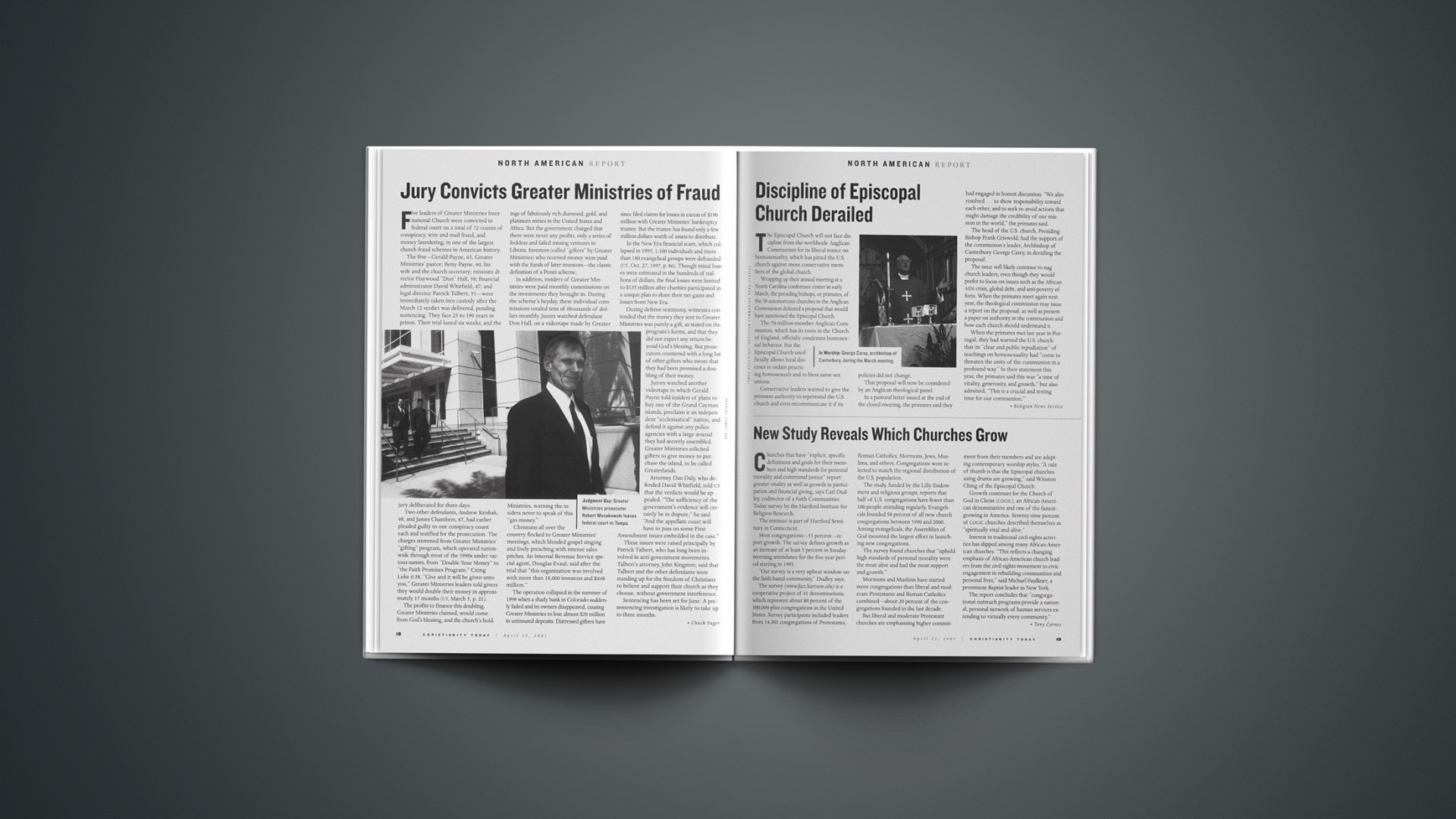The institute is part of Hartford Seminary in Connecticut.
Most congregations—51 percent—report growth. The survey defines growth as an increase of at least 5 percent in Sunday-morning attendance for the five-year period starting in 1995.
“Our survey is a very upbeat window on the faith-based community,” Dudley says.
The survey (www.fact.hartsem.edu) is a cooperative project of 41 denominations, which represent about 80 percent of the 300,000-plus congregations in the United States. Survey participants included leaders from 14,301 congregations of Protestants, Roman Catholics, Mormons, Jews, Muslims, and others. Congregations were selected to match the regional distribution of the U.S. population.
The study, funded by the Lilly Endowment and religious groups, reports that half of U.S. congregations have fewer than 100 people attending regularly. Evangelicals founded 58 percent of all new church congregations between 1990 and 2000. Among evangelicals, the Assemblies of God mounted the largest effort in launching new congregations.
The survey found churches that “uphold high standards of personal morality were the most alive and had the most support and growth.”
Mormons and Muslims have started more congregations than liberal and moderate Protestants and Roman Catholics combined—about 20 percent of the congregations founded in the last decade.
But liberal and moderate Protestant churches are emphasizing higher commitment from their members and are adapting contemporary worship styles. “A rule of thumb is that the Episcopal churches using drums are growing,” said Winston Ching of the Episcopal Church.
Growth continues for the Church of God in Christ (COGIC), an African-American denomination and one of the fastest-growing in America. Seventy-nine percent of COGIC churches described themselves as “spiritually vital and alive.”
Interest in traditional civil-rights activities has slipped among many African-American churches. “This reflects a changing emphasis of African-American church leaders from the civil-rights movement to civic engagement in rebuilding communities and personal lives,” said Michael Faulkner, a prominent Baptist leader in New York.
The report concludes that “congregational outreach programs provide a national, personal network of human services extending to virtually every community.”
Copyright © 2001 Christianity Today. Click for reprint information.
Related Elsewhere
The full text of the study and an executive summary of it are both available at Hartford Seminary’s Web site.Many other publications also took note of the study. The New York Times emphasized the finding that half of all congregations contain fewer than 100 adults who regularly participate in those congregations. Meanwhile, The Washington Post focused on denominational life: “Nearly two-thirds of U.S. congregations maintain strong ties to their religious denominations, debunking the widely held belief that affiliation with major religious groups has declined.” Similarly, The Abilene Reporter News noted, “Reports of the church’s demise apparently have been exaggerated in recent years.” The Hartford Courant took more of a local perspective, emphasizing the study itself and the press conference releasing the report. Religion News Service offered a broad article, but spent the most time examining the rise in contemporary worship styles.










